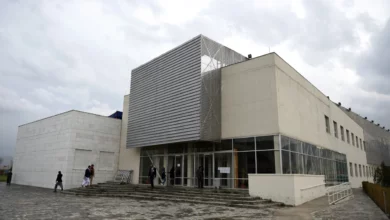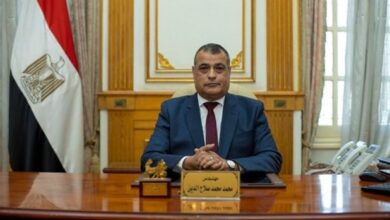This year, only 50.5 percent of students sitting for the thanaweya amma (high school) exams passed, outraging students, parents, and educators.
Minister of Education Ahmed Zaki Badr refused to allow a review of the results. At a meeting of the parliamentary education committee on Monday, he said that students who failed have low performance records already, and that he is satisfied with the veracity of this year’s results.
High school in Egypt lasts three years; the last two are commonly known as thanaweyya amma. Final exams are given on those two years and the final grade, which determines university and employment options for students, combines both scores.
There are different ways to potentially account for the low scores. One explanation is that the exams tested students on their cumulative understanding of a subject, rather than only on this year’s materials.
“Egyptian students are not used to being tested for information from previous curricula. Whereas there is no problem with that, they should be informed ahead of time,” said Tarek Hassan, a high school education expert.
There were complaints that some questions were too difficult for most students. The English language exam proved to be especially challenging. “This exam was very unfair to students of non-English schools. It contains very uncommon vocabulary,” said Azmi Naeem, an English teacher at the Ramses College for Girls, a private school in Cairo. He added that, in spite of that fact that English is the primary language at the Ramses College for Girls, only one of his students got a full mark in English, an unusually low outcome.
For parents, the results were disheartening. Since classroom learning is often considered insufficient, many parents are forced to invest money into expensive private lessons for their children.
“I replaced school with private lessons which they made me pay a large amount of money for that I couldn’t afford,” said Noha Azzab, the mother of a thanaweya amma student.
In many cases, private lessons became a substitution for the classroom. “Neither students nor teachers attend school at the end of the year, so the school asks students to pay LE15 in re-enrollment fees to make up for the absences,” said Hanan Hassan, another mother of a thanaweyya amma student in a public school.
Many students are disappointed and hopeless about next year’s exams.
“I’ve lost my will [to study] since the exam results were posted,” said Mahmoud Sadek, a thanaweyya ammastudent in his first year. Sadek wants to become an engineer, but public colleges where he can study the discipline require some of the highest scores in thanaweyya amma.




